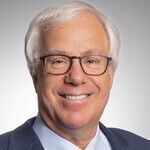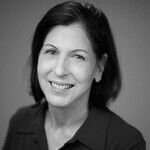"Bass ackwards," my old man would say, using a polite '50s locution to describe my way of going through life.
Not that Pop was destroying my self confidence or anything. Pop was a '50s dad, and except in the matter of sex, he didn't watch his mouth around his son.
As a reporter, I'm definitely bass ackwards. Instead of living in a suburb and driving into a poverty stricken city to work, I live in a poverty stricken city, where my newspaper is located, and I can often be found covering events in the suburbs.
And because of that bass ackward approach to geography and my job, I've gotten a really good look at childhood obesity among two groups of people who are separated by nothing more than dollars.
I used to drive past a city middle school every morning on my way to work. It's the middle school my wife attended, and the parents of its student body, if we believe the census, make an average of $35,000 a year. I live in Massachusetts, by the way, so $35,000 a year doesn't go as far as it might in rural Iowa.
"Geez," I told my wife one morning. "Those kids are huge."
"I remember the names of the two fat kids in my eighth-grade class," I told her. "I swear, maybe half of the kids at your old school are fat, especially the girls."
Six weeks later, I was maybe six miles away, in a suburb, covering something outdoors that I don't think was a middle school graduation but may have been connected to school fundraising. Lotta kids there.
The second middle school wasn't in the most bejeweled of suburbs, and I'm guessing the average income was maybe $45,000 a year.
"Different species," I told my wife. "Maybe 10 percent fat kids."
So, despite recent government proposals to ban bake sales, tweak school lunches, treat fast food joints like crack houses and "educate" kids about healthy eating, what it really takes to keep a lot of kids from getting fat is jobs for parents.
Devil, you say! You mean, you live better if your parents aren't miserably poor?
That isn't possible.
Money, we keep telling the people who don't have any, means nothing. Bootstraps mean something. Good choices mean something.
And, yeah, that's true. You can live a healthy, decent life in poverty. It's just harder than to do it poor than it is to do it with a couple bucks in your khakis. I've always said that being poor is the hardest job in the world and that's why so many people aren't very good at it.
Oh, yeah. The whole country is getting fatter, but like every other horrible thing, the poor are getting it first and worst.
There are a lot of neighborhoods in this country where it's easier to get good heroin than it is to get fresh grapes. And my addict sources tell me that the heroin gets weaker the farther away you get from the city.
"Aw, yeah," an on-again-off-again addict once told me. "You can buy dope here, cut it a couple times and sell it in the suburbs for maybe 25 percent more than you paid."
Nice markup there. I doubt you could work the same magic running fresh grapes into the ghetto. If you could, somebody would be doing it every day, probably somebody with a heroin habit to feed.
Because I live in a city, I think everything comes back to dope, because that's usually true. Because I live in America, I think everything comes back to money, because it usually does.
Neither one of those statements is pleasant.
So, yeah, pass a law saying that Denny's has to give you two pancakes instead of three. Tell the high school band club that they gotta sell lentil soup for their next fundraiser, instead of candy bars. See how many of those kids make it to band camp on the proceeds of THAT fundraiser.
Or, you could just work on making sure there was more full-time work at good wages.
Here's a joke for you.
What's the difference between a poor kid and a rich kid?
Money.
To find out more About Marc Munroe Dion and read features by other Creators Syndicate writers and cartoonists, visit www.creators.com






View Comments